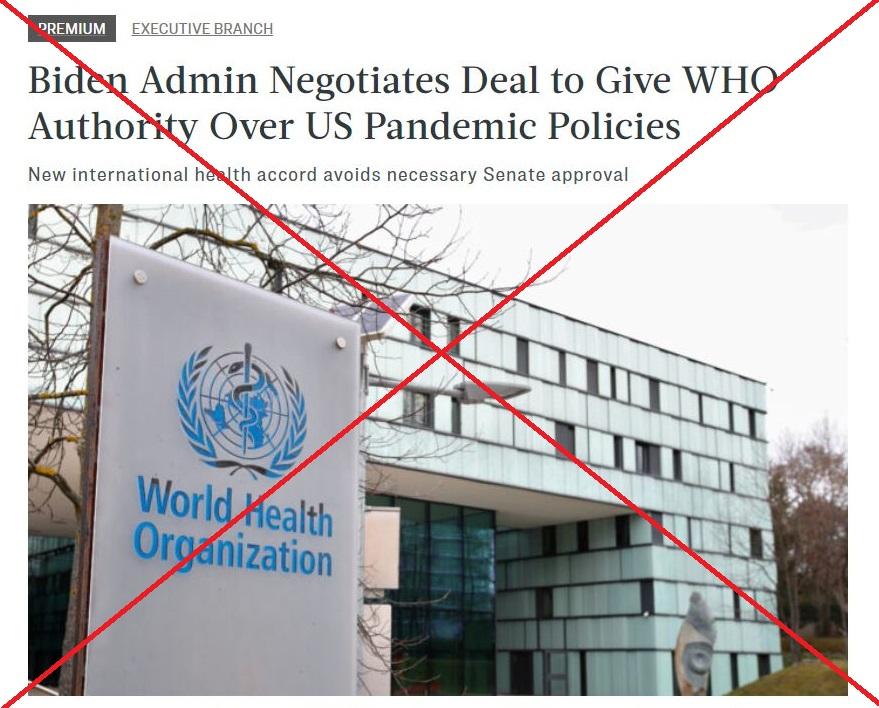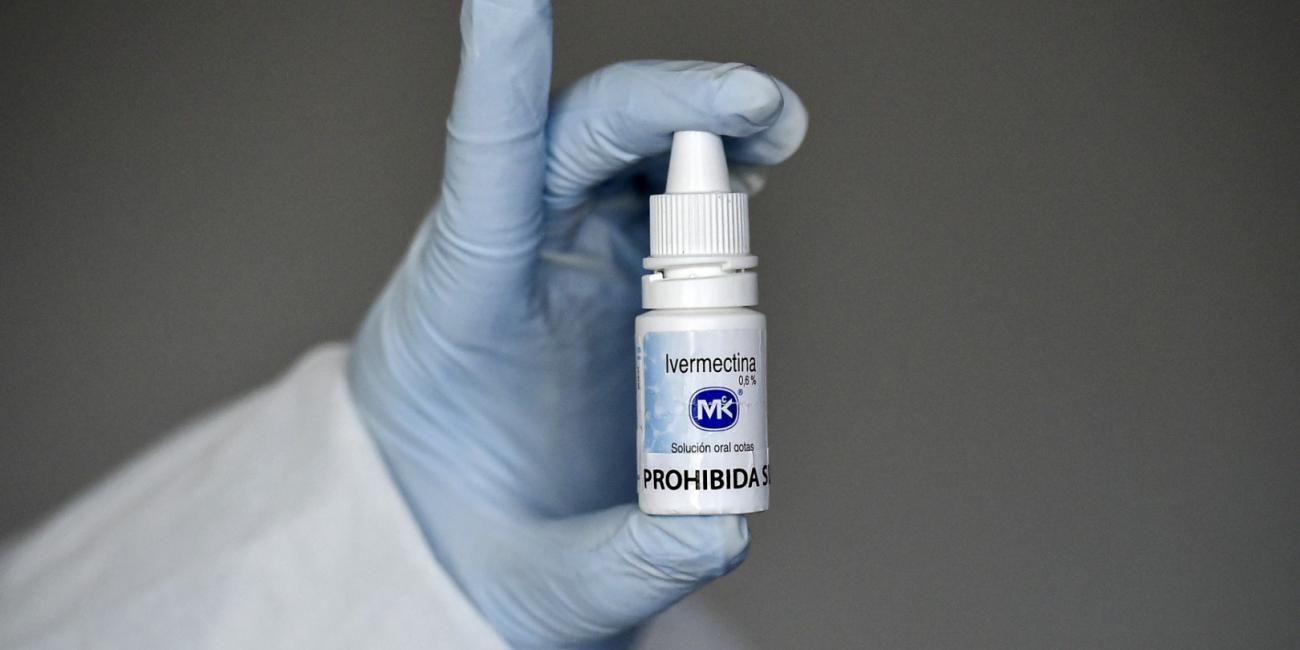
False claims about WHO pandemic accord resurface online
- This article is more than two years old.
- Published on February 27, 2023 at 22:48
- 4 min read
- By Daniel FUNKE, AFP USA
"The Biden administration is preparing to sign up the United States to a 'legally binding' accord with the World Health Organization (WHO) that would give the Geneva-based United Nations health agency the authority to dictate America's policies during a pandemic," says a February 18, 2023 article from the Epoch Times, a website that has previously published health misinformation.
The story accumulated tens of thousands of interactions on Facebook and Twitter, according to CrowdTangle, a social media insights tool. Anti-vaccine advocates such as Robert Malone and Steve Kirsch, as well as former US congresswoman Michele Bachmann, amplified the claims.
"There has never been a bigger power grab than this power grab -- and it's being led by the Biden administration," Bachmann told Tony Perkins, president of the Family Research Council, a Christian conservative lobbying group, in a February 20 interview. "The whole purpose of this legislation would be that 194 countries, all of the member states of the UN, would give up their sovereignty to the World Health Organization over health care."
Bachmann, a Republican who ran for president in 2012, went on to say the WHO "would be empowered to make decisions over vaccines, masks, lockdowns, supply chains -- almost every aspect of our lives would come under the authority of the World Health Organization."


The narrative gained traction online as WHO member states -- including the US -- deliberate a draft agreement aimed at strengthening international pandemic response. Similar discussions have previously been the subject of misinformation.
The World Health Assembly (WHA), the WHO's decision-making body, was meeting in Geneva, Switzerland between February 27 and March 3 to consider whether the document "will be the basis of negotiations for a pandemic accord." But member states have yet to ratify the draft -- and the convention says nothing about trumping domestic public health laws.
“It is false to claim that the World Health Organization has now, or will have by virtue of these activities, any authority to direct US health policy or national health emergency response actions," a spokesperson for the Department of Health and Human Services told AFP in a statement emailed February 27. "The WHO has no such enforcement mechanisms, and its non-binding recommendations to member states are just that: non-binding."
What the draft says
In December 2021, following criticism of the international response to the Covid-19 pandemic, the WHA established the Intergovernmental Negotiating Body. The goal: draft an agreement "to strengthen pandemic prevention, preparedness and response," according to the WHO.
The body -- which is open to all member states -- released such a proposal on February 1, 2023. The document calls for some "legally binding" elements, such as facilitating "the unimpeded access of humanitarian staff and cargo," in addition to equitable sharing of vaccines, drugs and data.
However, the accord specifically mentions the principle of sovereignty.
"States have, in accordance with the Charter of the United Nations and the principles of international law, the sovereign right to determine and manage their approach to public health, notably pandemic prevention, preparedness, response and recovery of health systems, pursuant to their own policies and legislation, provided that activities within their jurisdiction or control do not cause damage to their peoples and other countries," the draft says.
A final version of the convention will not come until 2024, according to the WHO. Individual member states will then decide whether they want to join it.
"Sovereignty remains squarely with the countries which are responsible for setting health policies for their citizens," the WHO said in a February 25 tweet.
No signal from US
While the Biden administration has previously proposed amendments to the International Health Regulations, it is unclear if the federal government would ratify an international pandemic accord. The US is not a party to the Framework Convention on Tobacco Control, the WHO's first international treaty and one of the most widely embraced in UN history.
Biden "never signaled that he would sign" the draft pandemic agreement, said Lawrence Gostin, faculty director of the O'Neill Institute for National and Global Health Law at Georgetown University.
"Even if he did sign it -- and even if it went to the Senate to ratify -- it absolutely would not affect US sovereignty and its own public health policies," said Gostin, who helped craft the proposal. "That's solely a matter for the US federal government and/or states."
The WHO affirms this on its website: "As with all international instruments, any new accord, if and when agreed by Member States, would be determined by governments themselves, who would take any action while considering their own national laws and regulations."
Gostin, who is also director of the WHO Collaborating Center on National and Global Health Law, added that there are "no compliance mechanisms" in the draft pandemic accord -- meaning that "even if the US decided to completely ignore what they signed, there would be no consequences."
"It's setting up a bogeyman that doesn't exist," he said of the claims circulating online.
Copyright © AFP 2017-2026. Any commercial use of this content requires a subscription. Click here to find out more.
Is there content that you would like AFP to fact-check? Get in touch.
Contact us




